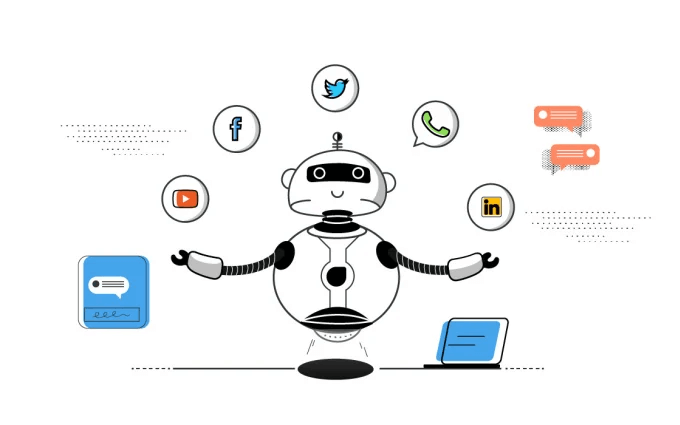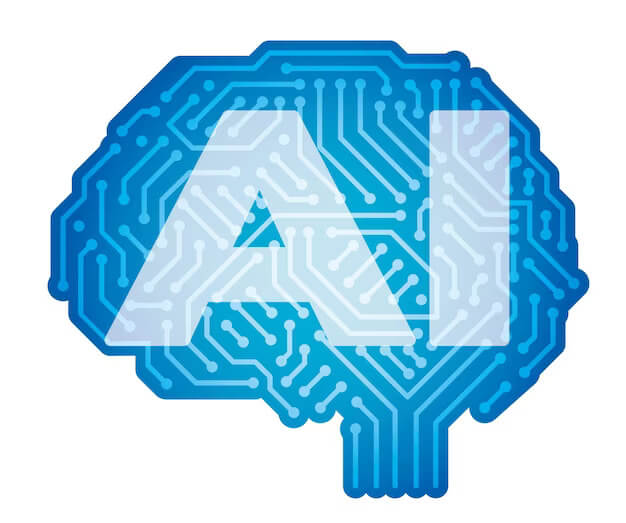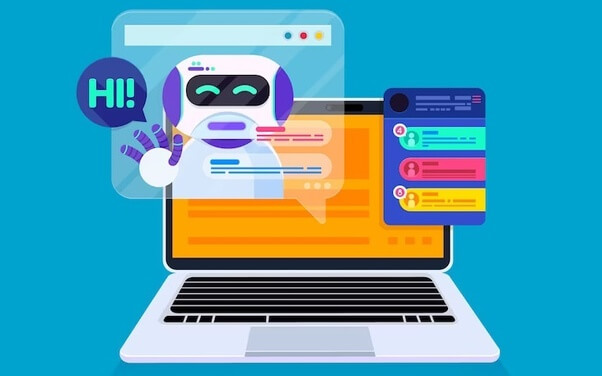AI and Robotics: Exploring Synergies and Careers at the Intersection of AI and Robotics

In today’s fast-paced world, where technological advancements seem to unfold at the speed of light, the convergence of Artificial Intelligence (AI) and Robotics has emerged as a dynamic and promising field. It’s a realm where machines not only mimic human intelligence but also interact with and manipulate the physical world. But what exactly is the synergy between AI and Robotics, and what career opportunities does it offer? Let’s embark on a journey to explore this fascinating intersection.
Understanding the Synergy
What is the synergy between AI and Robotics?
At its core, the synergy between AI and Robotics is about merging intelligent algorithms with physical machines to create autonomous systems. These systems can perceive their environment, make decisions, and execute actions, all without human intervention. But how do they work together?
AI provides the brains: It equips robots with the ability to process vast amounts of data, recognize patterns, learn from experiences, and make decisions based on that information. AI algorithms, like machine learning and deep learning, enable robots to adapt and improve their performance over time.
Robotics provides the brawn: Robots offer the physical embodiment of AI, allowing it to interact with the real world. They have sensors, actuators, and mechanical components that enable them to navigate, manipulate objects, and perform tasks in various environments.
What are the benefits of this synergy?
The marriage of AI and Robotics has profound implications across various domains:
- Efficiency: Autonomous robots can perform repetitive and labor-intensive tasks with precision, reducing human error and increasing productivity.
- Safety: In hazardous environments, robots can be deployed to protect human lives. For instance, AI-powered drones can perform search and rescue operations in disaster-stricken areas.
- Medical Advancements: Surgical robots, guided by AI, enhance the precision of surgeries, leading to faster recovery times and improved patient outcomes.
- Exploration: In space and deep-sea exploration, AI-driven robots enable us to gather data from remote and inhospitable locations.
- Manufacturing: Automation in factories, driven by AI-powered robots, streamlines production processes and lowers costs.
Exploring Career Opportunities

Now that we’ve delved into the synergy between AI and Robotics, let’s navigate the career landscape at this intersection.
Robotics Engineer
What does a Robotics Engineer do?
A Robotics Engineer designs, builds, and maintains robotic systems. They work on developing the mechanical components, sensors, and control systems that enable robots to function autonomously.
Skills Required:
- Proficiency in programming languages like C++, Python, and ROS (Robot Operating System).
- Strong knowledge of mechanical design and kinematics.
- Understanding of sensor technologies and computer vision.
Career Outlook:
The demand for Robotics Engineers is on the rise, especially in industries like manufacturing, healthcare, and agriculture. As automation becomes more prevalent, the need for skilled professionals who can create and maintain robotic systems continues to grow.
Machine Learning Engineer
What does a Machine Learning Engineer do?
Machine Learning Engineers are responsible for developing AI algorithms that enable robots to perceive and make decisions based on data. They work on tasks like object recognition, natural language processing, and reinforcement learning.
Skills Required:
- Expertise in machine learning libraries and frameworks, such as TensorFlow and PyTorch.
- Data preprocessing and model training capabilities.
- Strong problem-solving skills.
Career Outlook:
The demand for Machine Learning Engineers is skyrocketing across various industries. As robots become more intelligent and adaptable, companies seek experts who can enhance their AI capabilities.
AI Ethicist
What does an AI Ethicist do?
AI Ethicists ensure that AI and Robotics technologies are developed and used responsibly. They address ethical concerns, biases in algorithms, and the societal impact of autonomous systems.
Skills Required:
- Deep understanding of ethics, philosophy, and AI technology.
- Strong communication skills to engage with stakeholders and the public.
- Ability to analyze and mitigate bias in AI algorithms.
Career Outlook:
With the growing importance of ethical considerations in AI and Robotics, the role of AI Ethicist is gaining prominence. Companies are increasingly recognizing the need to address ethical concerns in their technology.
Robotics Software Developer
What does a Robotics Software Developer do?
These professionals focus on creating the software that controls robots. They develop the algorithms that enable robots to perceive their environment, plan their actions, and execute tasks effectively.
Skills Required:
- Proficiency in programming languages like Python, Java, or C#.
- Knowledge of robot simulation tools like Gazebo or V-REP.
- Strong problem-solving skills and creativity in designing robotic solutions.
Career Outlook:
As robots become more sophisticated, the demand for Robotics Software Developers continues to grow. They play a crucial role in making robots smarter and more adaptable to various tasks.
AI Research Scientist
What does an AI Research Scientist do?
AI Research Scientists are at the forefront of developing cutting-edge AI algorithms. They work on pushing the boundaries of AI technology, which eventually benefits AI-powered robots.
Skills Required:
- A deep understanding of machine learning and deep learning concepts.
- Proficiency in mathematics, particularly linear algebra and calculus.
- Strong research and innovation capabilities.
Career Outlook:
The demand for AI Research Scientists remains high, particularly in academia and research institutions. Their work contributes to the advancement of AI, which, in turn, enhances robotic capabilities.
Navigating the Educational Path

Now that you’re aware of the exciting career opportunities at the intersection of AI and Robotics, let’s discuss how to prepare for these roles:
- Bachelor’s Degree in Robotics, Computer Science, or Electrical Engineering: To start a career in AI and Robotics, consider pursuing a bachelor’s degree in one of these fields. It provides you with a strong foundation in programming, mathematics, and engineering principles.
- Master’s Degree (Optional): While not always mandatory, a master’s degree can enhance your qualifications and open up more specialized career options. Many universities offer programs in Robotics, AI, or related fields.
- Online Courses and Certifications: Continuous learning is key in the tech industry. Consider taking online courses and earning certifications in AI, machine learning, and robotics. Platforms like Coursera, edX, and Udacity offer valuable resources.
- Internships and Projects: Hands-on experience is invaluable. Seek internships or work on personal projects related to AI and Robotics to build a portfolio that demonstrates your skills.
AI and Robotics represent a thrilling convergence of technology and innovation. The synergy between the two fields is transforming industries and creating exciting career opportunities. Whether you aspire to design robots, develop AI algorithms, or ensure ethical AI practices, there’s a place for you at this intersection. So, are you ready to embark on a journey into the future of technology and automation? The possibilities are endless, and the opportunities are waiting for you!
Frequently Asked Questions (FAQ) – AI and Robotics: Exploring Synergies and Careers at the Intersection of AI and Robotics
Here are some commonly asked questions about the exciting world of AI and Robotics:
- What is the intersection of AI and Robotics?
Answer: The intersection of AI and Robotics refers to the synergy between Artificial Intelligence (AI) and physical robots. It involves equipping robots with intelligent algorithms, enabling them to perceive their environment, make decisions, and execute actions autonomously.
- What are the benefits of combining AI and Robotics?
Answer: The synergy between AI and Robotics offers various benefits, including increased efficiency, enhanced safety in hazardous environments, medical advancements through surgical robots, improved exploration capabilities, and streamlined manufacturing processes.
- What career opportunities are available at the intersection of AI and Robotics?
Answer: There are several career opportunities, including:
- Robotics Engineer: Designing and maintaining robotic systems.
- Machine Learning Engineer: Developing AI algorithms for robots.
- AI Ethicist: Ensuring responsible AI and Robotics development.
- Robotics Software Developer: Creating software to control robots.
- AI Research Scientist: Pushing the boundaries of AI technology.
- Do I need a specific educational background to pursue a career in AI and Robotics?
Answer: While not mandatory, a bachelor’s degree in Robotics, Computer Science, or Electrical Engineering is a common starting point. Some roles may require a master’s degree. Continuous learning through online courses and certifications is also essential.
- How can I gain practical experience in AI and Robotics?
Answer: Consider seeking internships, working on personal projects, or participating in research initiatives related to AI and Robotics. Building a portfolio of practical experience is valuable in this field.
- Are there ethical considerations in AI and Robotics?
Answer: Yes, ethical considerations are critical. As AI and Robotics become more prevalent, addressing issues such as bias in algorithms, data privacy, and the societal impact of autonomous systems is essential. AI Ethicists play a significant role in ensuring responsible development and usage.
- What industries are AI and Robotics impacting the most?
Answer: AI and Robotics have a significant impact across various industries, including manufacturing, healthcare, agriculture, space exploration, and even entertainment. These technologies are versatile and adaptable to a wide range of applications.
- What is the future of AI and Robotics?
Answer: The future of AI and Robotics holds immense potential. As technology continues to advance, we can expect to see even more intelligent and capable robots in our daily lives. These innovations will likely lead to further automation, improved safety, and new opportunities for career growth in this field.
- How can I stay updated on developments in AI and Robotics?
Answer: To stay informed, follow industry news, join online forums and communities, attend conferences, and engage with experts in the field. Additionally, consider enrolling in online courses and reading academic publications to keep up with the latest advancements.
- Are there any challenges in the field of AI and Robotics?
Answer: Yes, there are challenges, including ethical concerns, the potential for job displacement due to automation, and the need for regulations to ensure responsible AI and Robotics development. These challenges are being addressed as the field continues to evolve.